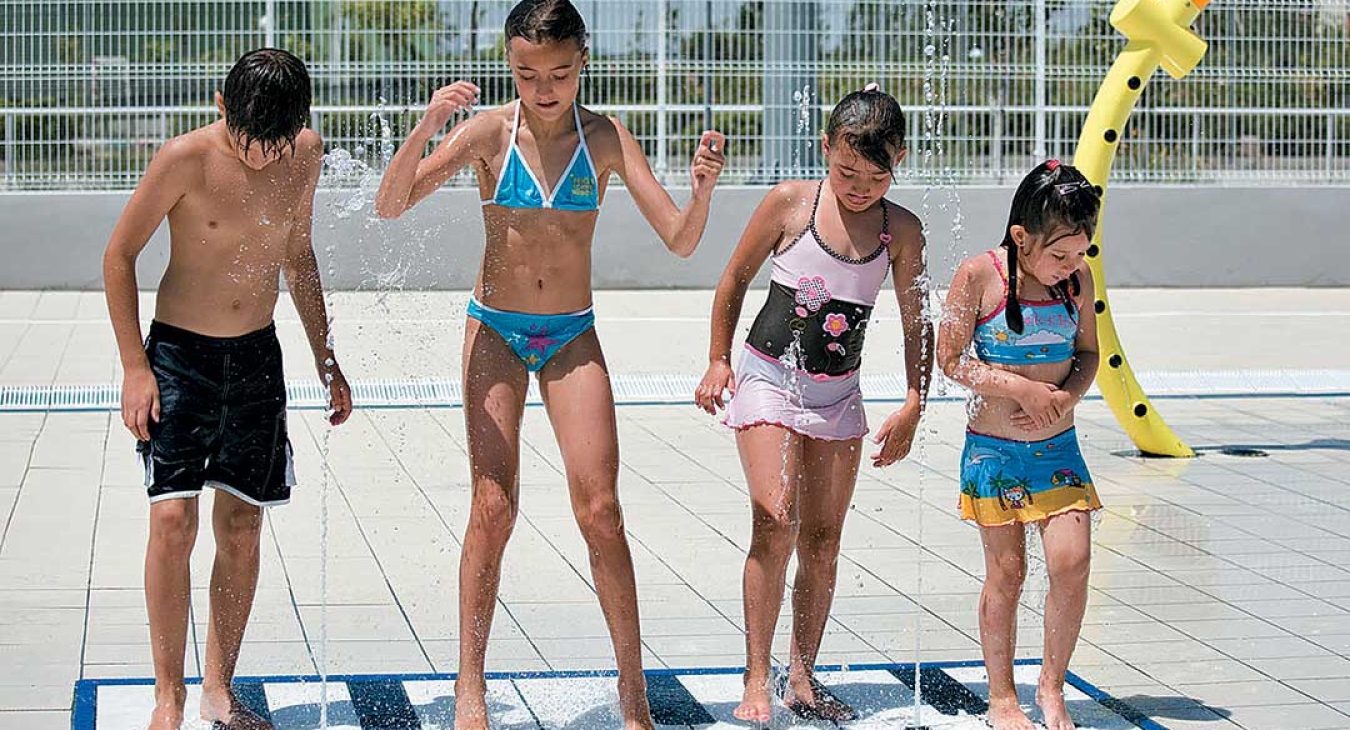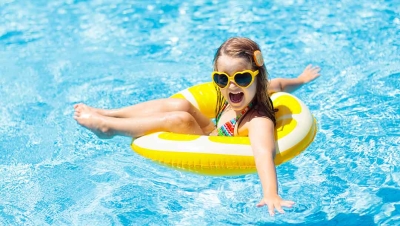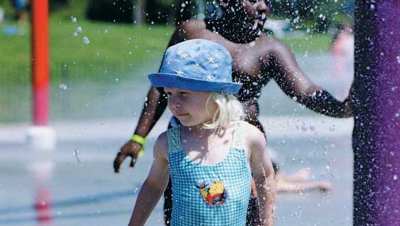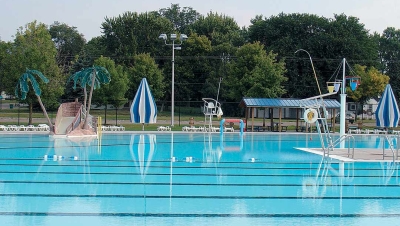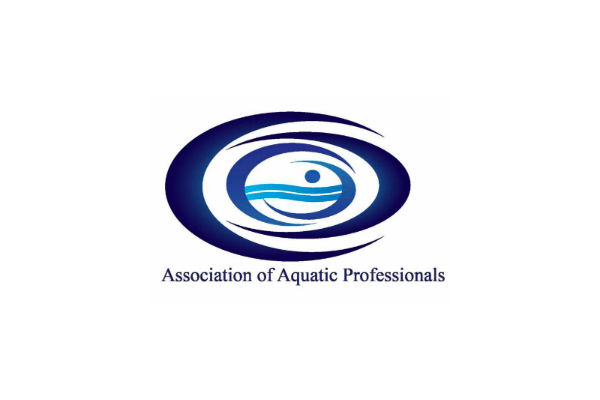Contrary to popular belief, chlorine does not kill all germs instantly. There are germs today that are very tolerant to chlorine and were not known to cause human disease until recently. Once these germs get in the pool, it can take anywhere from minutes to days for chlorine to kill them. Swallowing just a little water that contains these germs can make you sick.
Recreational water illnesses (RWIs) are caused by germs spread by swallowing, breathing in mists or aerosols of, or having contact with contaminated water in swimming pools, hot tubs, water parks, water play areas, interactive fountains, lakes, rivers or oceans. RWIs can also be caused by chemicals in the water or chemicals that evaporate from the water and cause indoor air quality problems.
RWIs include a wide variety of infections, including gastrointestinal, skin, ear, respiratory, eye, neurologic and wound infections. The most commonly reported RWI is diarrhea. Diarrheal illnesses are caused by germs such as Crypto (short for Cryptosporidium), Giardia, Shigella, norovirus and E. coli O157:H7.
In the past two decades, there has been a substantial increase in the number of RWI outbreaks associated with swimming. Crypto, which can stay alive for days even in well-maintained pools, has become the leading cause of swimming pool-related outbreaks of diarrheal illness. From 2004 to 2008, reported Crypto cases increased more than 200 percent (from 3,411 cases in 2004 to 10,500 cases in 2008) (1).
Although Crypto is tolerant to chlorine, most germs are not. Keeping chlorine at recommended levels is essential to maintain a healthy pool. However, a 2010 study found that 1 in 8 public pool inspections resulted in pools being closed immediately due to serious code violations such as improper chlorine levels (2).
With RWI outbreaks on the rise, swimmers need to take an active role in helping to protect themselves and prevent the spread of germs. It is important to learn the basic facts about RWIs so you can keep yourself and your family healthy every time you swim.
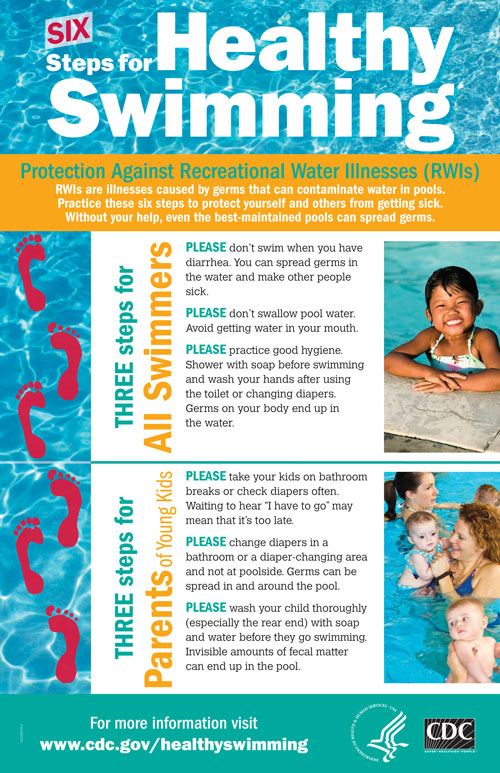
(1) CDC. Cryptosporidiosis Surveillance---United States, 2006--2008. MMWR 2010; 59(SS06): 1-14.
(2) CDC. Violations Identified from Routine Swimming Pool Inspections---Selected States and Counties, United States, 2008. MMWR 2010; 59(SS19): 582-587.
By the Centers for Disease Control and Prevention
Centers for Disease Control and Prevention
1600 Clifton Rd
Atlanta, GA 30333
800-CDC-INFO
(800-232-4636)
TTY: (888) 232-6348
24 Hours/Every Day



